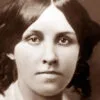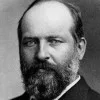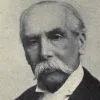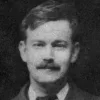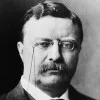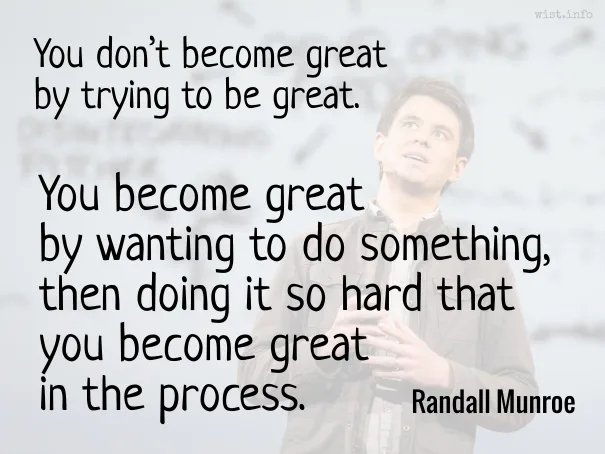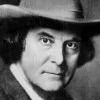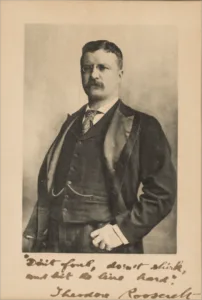No gains without pains.
Benjamin Franklin (1706-1790) American statesman, scientist, philosopher, aphorist
Poor Richard (1745 ed.)
(Source)
Franklin recapped this in his final Poor Richard Improved (1758 ed.): "There are no Gains, without Pains." This was in turn reprinted in abridged Way to Wealth (1773).
Sometimes erroneously cited to Poor Richard (1734 ed.); that has something different in structure and meaning: "Hope of gain / Lessens pain."
See also Breton (1577) and Herrick (1648).
Quotations about:
hard work
Note not all quotations have been tagged, so Search may find additional quotes on this topic.
Mild success can be explainable by skills and labor. Wild success is attributable to variance.
Nassim Nicholas Taleb (b. 1960) Lebanese-American essayist, statistician, risk analyst, aphorist
Fooled by Randomness, Part 1, ch. 1 (2001)
(Source)
SUSAN: The world is hard, they must take pain that look for any gayn.
Nicholas Breton (c. 1545/53 - c. 1625/26) English Renaissance poet and prose writer [Britton; Brittaine]
Workes of a Young Wyt (1577)
(Source)
First record of something resembling "No pain, no gain" in English.
Diligence is the Mother of Good-Luck.
Benjamin Franklin (1706-1790) American statesman, scientist, philosopher, aphorist
Poor Richard (1736 ed.)
(Source)
Housekeeping ain’t no joke.
Louisa May Alcott (1832-1888) American writer
Little Women, Part 1, ch. 11 (1868)
(Source)
Labeled as a saying of the family maid and cook, Hannah. The girls recognize its truth as they take over the housekeeping for the "ailing" Mrs. Marsh.
If we could ever get vacations down to where you wasn’t any more tired on the day one was over than on our regular work day it would be wonderful.
Art followed hard on art. Toil triumphed over every obstacle, unrelenting Toil, and Want that pinches when life is hard.
[Tum variae venere artes. Labor omnia vicit
inprobus et duris urgens in rebus egestas.]Virgil (70-19 BC) Roman poet [b. Publius Vergilius Maro; also Vergil]
Georgics [Georgica], Book 1, l. 145ff (1.145) (29 BC) [tr. Fairclough (Loeb) (1916)]
(Source)
On humanity developing the arts and sciences in response to Jove making life difficult.
Compare this to Labor omnia vincit ("Work conquers all"), Oklahoma's state motto.
(Source (Latin)). Alternate translations:Then came strange arts, fierce labor all subdues.
Inforc'd by bold Necessity, and Want.
[tr. Ogilby (1649)]And various Arts in order did succeed,
(What cannot endless Labour urg'd by need?)
[tr. Dryden (1709), ll. 217-218]Thus by long labour arts to arts succeed,
Such is the force of all-compelling need.
[tr. Nevile (1767)]Thus rous'd by varied wants new arts arose,
And strenuous Labour triumph'd at its close.
[tr. Sotheby (1800)]Then various arts ensued. Incessant labour and want, in hardships pressing, surmounted every obstacle.
[tr. Davidson (1854)]Then came the various arts: oh, grand success
Of reckless toil and resolute distress!
[tr. Blackmore (1871)]Then came the various arts of life. So toil, relentless toil, and the pressure of want in adversity, conquered the world. [tr. Wilkins (1873)]Then divers arts arose; toil conquered all,
Remorseless toil, and poverty's shrewd push
In times of hardship.
[tr. Rhoades (1881)]Thus stern Necessity inventive tried
Fresh arts, which life’s increasing wants supplied.
[tr. King (1882)]Then various arts followed. Unwearying labor overcame every difficulty, and want spurring men on in times of hardship.
[tr. Bryce (1897)]Then arts many in sort; nothing but yielded to unrelenting toil and the hard pressure of poverty.
[tr. Mackail (1899)]Then divers arts arose; toil conquered all,
Remorseless toil, and poverty's shrewd push
In times of hardship.
[tr. Greenough (1900)]Then followed manifold arts: unflinching toil ever one
Triumphs: in hardship's school stern need still drave men on.
[tr. Way (1912)]Then later times
Brought forth of other arts the varied skill.
Work conquered all, relentless, obstinate,
While poverty and hardship urged it on.
[tr. Williams (1915)]Then numerous arts arose. Yes, unremitting labour
And harsh necessity's hand will master anything.
[tr. Day-Lewis (1940)]Then followed all the civilizing arts:
Hard labor conquered all, and pinching need.
[tr. Bovie (1956)]Then all kinds of skills came into being. Toil has overcome all things, runious toil and need, pressing in harsh circumstances.
[tr. Miles (1980)]And last the various arts.
Toil mastered everything, relentless toil
And the pressure of pinching poverty.
[tr. Wilkinson (1982)]Then came the various arts. Hard labour conquered all,
and poverty’s oppression in harsh times.
[tr. Kline (2001)] https://www.poetryintranslation.com/PITBR/Latin/VirgilGeorgicsI.php#anchor_Toc533589845:~:text=then%20came%20the,in%20harsh%20times.Then came the arts in many guises. Relentless work conquered
all difficulties -- work and urgent need when times were hard.
[tr. Lembke (2004)]All this before the knowledge and know-how which ensued. Hard work prevailed, hard work and pressing poverty.
[tr. Fallon (2006)]And then myriad arts. Toil subdued the earth, relentless toil, and the prick of dearth in hardship.
[tr. Johnson (2009)]Then followed other arts; and everything
Was toil, relentless toil, urged on by need.
[tr. Ferry (2015)]
In all seriousness, people think that it’s the ideas that are important. Well, everyone has ideas, all the time. I tend to write mine down and remember them, but at some point you have to apply the bum to the seat and knock out about sixty five thousand words — that’s how long a novel is.
Hard work is a prison sentence only if it does not have meaning. Once it does, it becomes the kind of thing that makes you grab your wife around the waist and dance a jig.
Malcolm Gladwell (b. 1963) Anglo-Canadian journalist, author, public speaker
Outliers: The Story of Success, Part 1, ch. 5, sec. 10 (2008)
(Source)
Once a musician has enough ability to get into a top music school, the thing that distinguishes one performer from another is how hard he or she works. That’s it. And what’s more, the people at the very top don’t work just harder or even much harder than everyone else. They work much, much harder.
Malcolm Gladwell (b. 1963) Anglo-Canadian journalist, author, public speaker
Outliers: The Story of Success, ch. 2 “The 10,000 Hour Rule,” sec. 2 (2008)
(Source)
Somewhere we must come to see that human progress never rolls in on the wheels of inevitability. It comes through the tireless efforts and the persistent work of dedicated individuals who are willing to be coworkers with God. And without this hard work, time itself becomes an ally of the primitive forces of social stagnation. So we must have time and realize that the time is always right to do right.
Martin Luther King, Jr. (1929-1968) American clergyman, civil rights leader, social activist, preacher
“Remaining Awake Through a Great Revolution,” National Cathedral, Washington, DC (31 Mar 1968)
(Source)
Altruism is a hard master; but so is opportunism.
Mignon McLaughlin (1913-1983) American journalist and author
The Neurotic’s Notebook, ch. 5 (1963)
(Source)
The encyclopedia is the only place in the world where World Domination comes before Work!
— The last words of Joaquin the Illiterate, just before he hit that big red button labeled Do Not Touch
Phil Foglio (b. 1956) American writer, cartoonist
Agatha H. and the Siege of Mechanicsburg (2020), ch. 3, Epigraph [with Kaja Foglio]
(Source)
At least there are more forms of escapism than those who bandy that word about are always aware of. An artist, for instance, may escape from the problems of his art — which are hard to solve — into a consideration of the problems of society which he sometimes seems to think require of him only that he complain about them. Even the ordinary citizen is not always guiltless of similar techniques and it is, for example, sometimes easier to head an institute for the study of child guidance than it is to turn one brat into a decent human being.
If hard work is not another name for talent, it is the best possible substitute for it.
James A. Garfield (1831-1881) US President (1881), lawyer, lay preacher, educator
“College Education,” Speech, Western Reserve Eclectic Institute (Jun 1867)
(Source)
For there is no gardening without humility, an assiduous willingness to learn, and a cheerful readiness to confess you were mistaken. Nature is continually sending even its oldest scholars to the bottom of the class for some egregious blunder. But, by the due exercise of patience and diligence, they may work their way to the top again.
Alfred Austin (1835-1913) English poet, UK Poet Laureate (1896-1913)
The Garden That I Love, “April 30th” (1894)
(Source)
Coming up with ideas is the easiest thing on earth. Putting them down is the hardest.
Rod Serling (1924-1975) American screenwriter, playwright, television producer, narrator
“Writing for Television – Conversations with Rod Serling,” Ithaca College (1972)
(Source)
Laborare est orare. By the Puritan moralist the ancient maxim is repeated with a new and intenser significance. The labor which he idealizes is not simply a requirement imposed by nature, or a punishment for the sin of Adam. It is itself a kind of ascetic discipline, more rigorous than that demanded of any order of mendicants — a discipline imposed by the will of God, and to be undergone, not in solitude, but in the punctual discharge of secular duties. It is not merely an economic means, to be laid aside when physical needs have been satisfied. It is a spiritual end, for in it alone can the soul find health, and it must be continued as an ethical duty long after it has ceased to be a material necessity.
R. H. Tawney (1880-1962) English writer, economist, historian, social critic [Richard Henry Tawney]
Religion and the Rise of Capitalism, ch. 4 (1926)
(Source)
The Latin means, "To work is to pray."
It is through education that the daughter of a peasant can become a doctor, that the son of a mine worker can become the head of the mine, that a child of farm workers can become the president of a great nation. It is what we make out of what we have, not what we are given, that separates one person from another.
And therefore knowledge that tendeth but to satisfaction, is but as a courtesan, which is for pleasure, and not for fruit or generation.
Francis Bacon (1561-1626) English philosopher, scientist, author, statesman
Valerius Terminus: Of the Interpretation of Nature, ch. 1 (1603)
(Source)
The only route to success is hard work. If you didn’t work hard I don’t think it counts as success.
The truest American president we have ever had, the companion of Washington in our love and honor, recognized that the poorest man, however outraged, however ignorant, however despised, however black, was, as a man, his equal. The child of the American people was their most prophetic man, because, whether as small shop-keeper, as flat-boatman, as volunteer captain, as honest lawyer, as defender of the Declaration, as President of the United States, he knew by the profoundest instinct and the widest experience and reflection, that in the most vital faith of this country it is just as honorable for an honest man to curry a horse and black a boot as it is to raise cotton or corn, to sell molasses or cloth, to practice medicine or law, to gamble in stocks or speculate in petroleum. He knew the European doctrine that the king makes the gentleman; but he believed with his whole soul the doctrine, the American doctrine, that worth makes the man.
George William Curtis (1824-1892) American essayist, editor, reformer, orator
“The Good Fight” (1865)
(Source)
The first requisite of a good citizen in this republic of ours is that he shall be able and willing to pull his weight; that he shall not be a mere passenger, but shall do his share in the work that each generation of us finds ready to hand; and, furthermore, that in doing his work he shall show, not only the capacity for sturdy self-help, but also self-respecting regard for the rights of others.
Theodore Roosevelt (1858-1919) American politician, statesman, conservationist, writer, US President (1901-1909)
Speech (1902-11-11), State Chamber of Commerce Banquet, New York City
(Source)
This first part of this passage was quoted by Ronald Reagan at a fundraising dinner for Sen. Mack Mattingly in Atlanta (1985-06-05), discussing reform measures to close up tax loopholes.
You don’t become great by trying to be great. You become great by wanting to do something, then doing it so hard that you become great in the process.
Randall Munroe (b. 1984) American webcomic writer, roboticist, programmer
XKCD, # 896 “Marie Curie” (9 May 2011)
(Source)
I am very sure that any man of common understanding may, by proper culture, care, attention and labor, make himself whatever he pleases, except a great poet.
Lord Chesterfield (1694-1773) English statesman, wit [Philip Dormer Stanhope]
Letter to his son, #113 (9 Oct 1746)
(Source)
“Now … if you trust in yourself …”
“Yes?”
“… and believe in your dreams …”
“Yes?”
“… and follow your star …” Miss Tick went on.
“Yes?”
“… you’ll still be beaten by people who spent their time working hard and learning things and weren’t so lazy.”
There are but two ways of rising in the world: either by your own industry or by the folly of others.
[Il n’y a au monde que deux manières de s’élever, ou par sa propre industrie, ou par l’imbécillité des autres.]
Jean de La Bruyère (1645-1696) French essayist, moralist
The Characters [Les Caractères], ch. 6 “Of Gifts of Fortune [Des Biens de Fortune],” § 52 (6.52) (1688) [tr. Van Laun (1885)]
(Source)
(Source (French)). Alternate translations:There is but two ways of rising in the World, by your own Industry, and another's Weakness.
[Bullord ed. (1696)]There are only two ways of rising in the World, by your own Industry, or by the Weakness of others.
[Curll ed. (1713)]There are but two ways of rising in the World, by your own Industry, or the Weakness of others.
[Browne ed. (1752)]There are only two ways of getting on in the world: either by one's own cunning efforts, or by other people's foolishness.
[tr. Stewart (1970)]
The real reason why the name of the boss doesn’t appear on the time-sheet is not because he’s a bigger man than any one else in the place, but because there shouldn’t be any one around to take his time when he gets down and when he leaves.
George Horace Lorimer (1867-1937) American journalist, author, magazine editor
Old Gorgon Graham: More Letters from a Self-Made Merchant to His Son, ch. 10 (1903)
(Source)
The greatest humiliation in life, is to work hard on something from which you expect great appreciation, and then fail to get it.
Edgar Watson "Ed" Howe (1853-1937) American journalist and author [E. W. Howe]
Ventures in Common Sense, “Miscellany of Life” (1919)
(Source)
No pain, no palm;
No thorns, no throne;
No gall, no glory;
No cross, no crown.William Penn (1644-1718) English writer, philosopher, politician, statesman
“No Cross, No Crown” (1682)
Originally written while a prisoner in the Tower of London (1668-69). See Quarles (1621), Breton (1577).
Constant effort and frequent mistakes are the stepping-stones of genius.
Elbert Hubbard (1856-1915) American writer, businessman, philosopher
Little Journeys to the Homes of the Great, Vol. 12: Little Journeys to the Homes of Great Scientists, “William Herschel” (1916)
(Source)
It is not enough to tell me you worked hard to get your gold. So does the Devil work hard.
Henry David Thoreau (1817-1862) American philosopher and writer
Essay (1863-10), “Life without Principle,” Atlantic Monthly, No. 72
(Source)
Writing of the California Gold Rush.
Based his lecture (1854-12-06) "What Shall It Profit?" Railroad Hall, Providence, Rhode Island. He had edited it for publication before his death, and it was published posthumously.
If that’s his humour, trust me, I shall spare
No kind of pains to win admittance there:
I’ll bribe his porter; if denied to-day,
I’ll not desist, but try some other way:
I’ll watch occasions — linger in his suite,
Waylay, salute, huzzah him through the street.
Nothing of consequence beneath the sun
Without great labour ever yet was done.[Haud mihi dero:
muneribus servos corrumpam; non, hodie si
exclusus fuero, desistam; tempora quaeram,
occurram in triviis, deducam. Nil sine magno
vita labore dedit mortalibus]Horace (65-8 BC) Roman poet, satirist, soldier, politician [Quintus Horatius Flaccus]
Satires [Saturae, Sermones], Book 1, # 9, “Ibam forte Via Sacra,” l. 56ff (1.9.56-60) (35 BC) [tr. Howes (1845)]
(Source)
A pesky bore and would-be social climber, describing his determination to wheedle his way into the social circle of Horace's friend, Maecenas.
The last line was an old saying, found at least as early as Hesiod, Works and Days, l. 287 (c. 700 BC).
(Source (Latin)). Alternate translations:I will not fayle. Brybes shall corrupte his chéefist serving men:
Though once or twice the gates be shut I will not cease yet then:
Ile wayte my opportunitie, to meete him in the ways,
To leade him home, to curtsey him, and cap him when he stayes.
There is no good for to be borne, whilste we are lyuyng here:
Excepte we lye, faune, flatter, face, cap, keele, ducke, crouche, smile, fiere.
[tr. Drant (1567)]Well, to my self I will not wanting be,
I'le watch his hours, his servants I will see;
I will salute his Chariot in the street,
I'le bring him home as often as we meet:
We Courtiers strive for interest in vain,
Unless by long observance it we gain.
[ed. Brome (1666)]Well, when Occasion serves, I'le play my part,
I'le spare no cost and charge, try every Art,
Hang on his Coach, wait on him, all I can,
Bribe, Flatter, Cringe, but I'me resolv'd to gain,
'Tis only Labour, Sir, can raise a Man.
[tr. Creech (1684)]"I sha'n't be wanting there," he cried,
"I'll bribe his servants to my side;
To-day shut out, still onward press,
And watch the seasons of access;
In private haunt, in public meet,
Salute, escort him through the street.
There's nothing gotten in this life,
Without a world of toil and strife."
[tr. Francis (1747)]I will not be wanting to myself; I will corrupt his servants with presents; if I am excluded to-day, I will not desist; I will seek opportunities; I will meet him in the public streets; I will wait upon him home. Life allows nothing to mortals without great labor.
[tr. Smart/Buckley (1853)]Oh, I shall do my duty, I will bribe his slaves, I won't give up. If on the day on which I call, he says he's not at home, I'll choose my times, I'll meet him at the crossings of the streets, nay, I'll escort him home; you know life gives man nought without some toil.
[tr. Millington (1870)]No fear of me, sir: a judicious bribe
Will work a wonder with the menial tribe:
Say, I'm refused admittance for to-day;
I'll watch my time; I'll meet him in the way,
Escort him, dog him. In this world of ours
The path to what we want ne'er runs on flowers.
[tr. Conington (1874)]I'll not fail myself. I'll bribe his slaves. If shut out to-day, I'll not give up. I'll look for the fitting time ; I'll meet him in the streets; I'll escort him home. Life grants no boon to man without much toil.
[tr. Fairclough (Loeb) (1926)]I bet I don't fail.
I'll bribe all his servants. I'll keep coming back, pick my times,
Meet him walking in town, join his escort. Nothing
In life comes without labor.
[tr. Palmer Bovie (1959)]I’m confident.
I'll bribe his servants. And if today, for example, I’m
repulsed, I won't quit. I'll find a chance, bump into him
in public, walk places with him; without great labor
life gives us mortals naught.
[tr. Fuchs (1977)]I'll do it, I'll do it! By god, I'll bribe
His slaves, I'll never give up, I'll get
My foot in his door, somehow. I'll watch,
I'll wait, I'll catch him in the street,
I'll follow him home. Nothing worth doing
Is easy, here on earth!
[tr. Raffel (1983)]O I won't spare myself. I'll bribe his slaves.
Should I be kept out, I won't quit.
I'll keep my eye open for the right moment.
I'll run into him at some street-crossing.
I'll escort him home. Without great toil
life grants nothing to mortals.
[tr. Alexander (1999)]I'm on the case. I'll bribe his slaves. If I'm
repelled today, I won't give up, I'll wait
for the right time and meet him in the streets
and then escort him home.
Life grants no man a prize
who doesn't strive and strive.
[tr. Matthews (2002)]I shan't be found wanting.
I'll bribe his servants; and if today they shut me out,
I'll persevere, bide my time, meet him in the street,
escort him home. "Not without unremitting toil
are mortal prizes won."
[tr. Rudd (2005 ed.)]I’ll not fail:
I’ll bribe his servants with gifts: if I’m excluded
Today, I’ll persist: I’ll search out a suitable time,
Encounter him in the street, escort him home. Life grants
Nothing to mortals without a great effort.
[tr. Kline (2015)]
The mischief of flattery is not that it persuades any man that he is what he is not, but that it suppresses the influence of honest ambition, by raising an opinion that honor may be gained without the toil of merit.
Samuel Johnson (1709-1784) English writer, lexicographer, critic
The Rambler, #155 (10 Sep 1751)
(Source)
In short, in life, as in a foot-ball game, the principle to follow is:
Hit the line hard; don’t foul and don’t shirk, but hit the line hard!Theodore Roosevelt (1858-1919) American politician, statesman, conservationist, writer, US President (1901-1909)
“What We Can Expect of the American Boy,” St. Nicholas Magazine (1900-05)
(Source)
Reprinted as "The American Boy" in Roosevelt, The Strenuous Life (1900).
Roosevelt used this general phrasing on multiple occasions, so various forms can be found attributed or associated to him, such as:
- "In life, as in a football game, the principle to follow is: Never flinch. Never foul. Hit the line hard."
[Source]- "Don't flinch. Don't foul. Hit the line hard."
[Puck]- "Don't fowl, don't shirk, and hit the line hard!"
[Autograph]- "Don't flinch, don't fowl, and hit the line hard."
[Speech (1913-07-03)]
All gardeners live in beautiful places because they make them so.
Joseph Joubert (1754-1824) French moralist, philosopher, essayist, poet
Pensées [Thoughts], 1806 [tr. Auster (1983)]
(Source)
I have been unable to find an analog in other translations, or in the original French.
If people knew how hard I work to get my mastery, it wouldn’t seem too wonderful after all.
Michelangelo (1475-1564) Italian artist, architect, poet [Michelangelo di Lodovico Buonarroti Simoni]
(Attributed)
The earliest attributions only go back to the Twentieth Century (e.g., 1929) in non-academic contexts. No original source is known.
A related attribution, regarding the Sistine Chapel -- "If you knew how much work went into it, you would not call it genius." -- only can be found in the Twenty-First century (e.g., August 2001).





